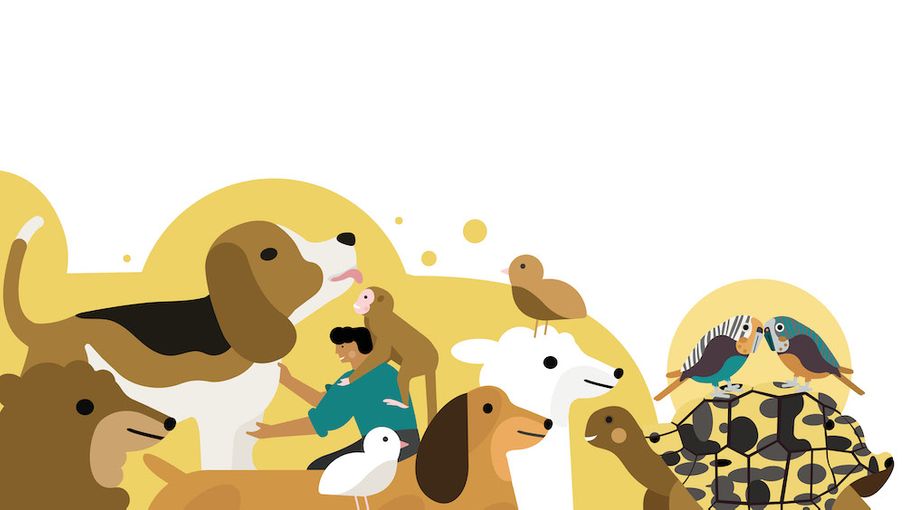The sense of joy we get from taking care of our pets is often unparalleled. But have you ever stopped to think just how much these animals are genuinely aiding and improving our mental health, too?
It’s a picture everyone recognises: outside the exam room, nervous students biting fingernails, leafing through last-minute revision notes, and regretting the nights spent out rather than revising. I was one of these students. It was finals – and failing them would lose me my first job before I’d even started. And then in walked the senior tutor with a cuddly beagle. The mood instantly, palpably lifted.
As a vet, I see the human-animal bond every day, and know how much our animals mean to us… But what effect are they having on our mental health?
1. Stress relief
Stroking animals releases oxytocin, a ‘happy’ hormone that floods our system and helps us relax. One study from Tel Aviv University, Israel, took a group of stressed adults and gave them either a toy or animal to hold. Those holding animals showed a decrease in their anxiety levels, whereas those with the toy didn’t. The animal doesn’t even have to be ‘cuddly’ – the same stress response was seen with a tortoise as with a rabbit. It’s long-lasting, too; an experiment published in the journal Stress and Health showed the stress-relieving effect lasts at least 10 hours in a group of students given time with a therapy dog.
2. Companionship

Owning a pet gives us companionship, and this is one of the most important factors in improving our mental health. A recent review of 17 papers, published in BMC Psychiatry, showed companionship of animals to be highly beneficial to anybody struggling with their mental health. This is the kind of benefit I see every day; elderly widows with beloved pets that might be the only living thing they see for days – think how lonely they would be without that companionship!
3. Meeting new people
Pets encourage us to get out into the world to have human interactions. Whether going to the vets, the groomer, or shopping for pet food, caring for our animals gets us out of the house. Personally, I’ve found that the number of people saying hello while on a walk is far higher when I have my dog with me, and sometimes we have lengthy chats because we have something in common – our passion for our pets.
4. A sense of routine
The routine introduced with pet ownership is one thing researchers from Purdue University, Indiana, identified as being responsible for the mental health benefits of animals. In short, pets give us a reason to get up in the morning, and a schedule of feeding, play, and grooming to stick to. This gives us a sense of purpose and responsibility, which can be so important to help people with depression.
5. live in the moment
Animals don’t think about the past, being judged, or worry about something that may or may not happen. They simply ‘be’, and their mindfulness is a lesson to us all. They enjoy their food, their walks, your return home. Each emotion is pure and fills the whole of them. If you’ve ever seen the video of the dog sliding down the snowy hill on his belly, you’ll know how much joy an animal can display – and how much joy we feel by witnessing it.
Can’t have a pet? Here’s how you can still benefit!
Volunteer at a rescue centre - All rescue centres need their animals cared for and appreciate volunteers.
Walk someone else’s dog - Borrow a friend’s dog or consider volunteering for the Cinnamon Trust to walk dogs for old or disabled owners.
Help with lambing - Farmers are usually keen for help in lambing season, and it doesn’t take long to learn.
Sign up for riding lessons - These give you a chance to spend time with the horses, and learn about their care.


Comments